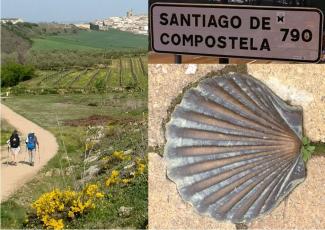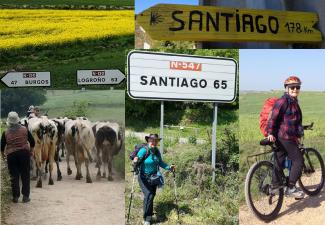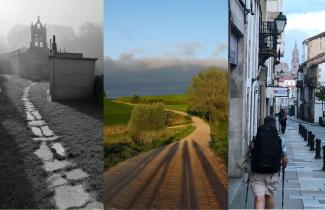The Camino Experience, continued...
When we started our journey, Santiago felt very far away. Walking 800km could have seemed an impossible task, but the journey can easily be broken into multiple stages. It goes through different regions, with different terrains. We would begin in the mountains of the Pyrenees before moving on to the hills of Navarra, then the vineyards and fertile lands of La Rioja.
Project Lesson 4: Chunk it down
- Methodologies for delivering complex projects are many and varied. E.g. they might include phased delivery, or prototyping, or parallel development, or an ‘Agile’ approach. What they all have in common is that they take something potentially overwhelming, and break it down into understandable, achievable, verifiable components and steps.
The Camino Experience, continued...
While my personal target was to reach Santiago de Compostela in 5 weeks, we were intentionally flexible during the initial stages. We hadn’t planned exactly where we would stop each night, or how long each stop would be, or where we would have breaks during the day.
We started slowly. The initial mountainous stages might have been the most tiring physically, but the relaxed pace helped me get used to the daily routine, and get the practical details right. I could refresh my knowledge of Spanish, learn some new words, and pick up the jargon of the Camino.
After leaving La Rioja we chose to cycle 200km across the flat Meseta plateau. This allowed us to make up time following a slowish start, as well as giving us some variety. Suddenly we’d passed the half way point and were back on time. The goal now seemed achievable.
Back on foot, we traversed the ups and downs of more hills before reaching Galicia, about 100km from our destination. By this point I was really looking forward to reaching Santiago. I was feeling strong, able to walk longer distances each day while still enjoying the scenery and sites.
Project Lesson 5: Walk before you run
- A large project can burn up funds at a sobering rate when it reaches full steam. Make sure you get the basics right first. Are the test environments set up? Have you settled on a methodology? Have you done some initial prototyping or other proof of concept?
- Only bring additional personnel on board once you are sure they can quickly ramp up to full productivity.
The Camino Experience, continued...
The trip was both a voyage of discovery and a roller coaster of emotions. Much of the daily focus was on reviewing the terrain for the upcoming stage, deciding where to stop, and planning where to get food and water. There was still plenty of time, however, to contemplate our goal and reflect on what we’d achieved so far.
Towards the end, once it became clear that I would soon be arriving in Santiago, there was a strong urge to walk faster, cover longer distances each day, and reach the goal sooner.
When setting out I had thought the aim was simply to reach Santiago. As it came nearer I realised I didn’t need to stop there. I could keep walking towards the sea, to Finisterre – ‘the end of the Earth’.
But what’s the point of a journey of discovery if you don’t stop and spend time reflecting on just what it is you have discovered? Besides, there are countless more Caminos. They may all share the same destination, but there are as many routes to Santiago as there are starting points.
Project Lesson 6: It doesn't end with 'Go Live'!
- There will always be pressure to move on to the next thing, but ‘going live’ is rarely the final word, and for a larger project it certainly won’t be. You can almost guarantee there will be post-launch tidy up tasks. Non-critical defects to investigate and fix, reports to write, support procedures to bed down.
- We should also spend time looking back at what we might have done differently with the benefit of hindsight, and what learnings we can take forward to the projects that follow.




